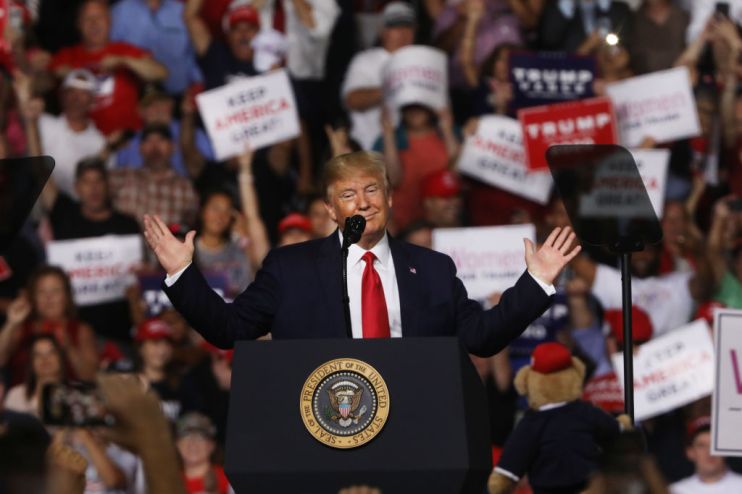Bond yields fall as Trump calls for cut and ECB hints at stimulus

Yields on global bonds have fallen following a renewed call for interest rate cuts from US President Donald Trump and dovish words from European Central Bank (ECB) board member Olli Rehn.
Read more: Eurozone inflation falls to well below ECB target in July
Trump yesterday evening called for a 100 basis point (one percentage point) interest rate cut from the Federal Reserve “over a fairly short period of time”.
Investors’ attention has turned to both the release of the Fed minutes tomorrow, which will be parsed for signs of willingness to drop rates, and to chair Jay Powell’s speech at Jackson Hole, Wyoming on Friday, where he is expected to signal more stimulus ahead.
Finland’s central bank governor Olli Rehn said yesterday evening that the ECB was determined to act if inflation stays stubbornly low. Eurozone inflation came in at just one per cent in July, well below the Bank’s target of close to two per cent.
He said: “A significant degree of monetary stimulus continues to be necessary to ensure that financial conditions remain very favourable and to support euro area growth and domestic price pressures.”
Investors have bought up ultra-safe government bonds following the interventions. The yield on the 10-year US government bond, called a Treasury, dropped 2.7 basis points (0.027 percentage points) to 1.583 per cent. In Germany, yields on 10-year Bunds fell 2.2 basis points to minus 0.67 per cent.
In the UK, yields on 10-year government bonds, called Gilts, dropped 1.1 basis points to 0.457 per cent. Yields on two-year gilts fell 1.6 basis points to 0.474 per cent. Yields move inversely to prices.
If interest rates fall, bond prices rise because their coupon – the amount paid out at regular intervals to the holder – is more attractive. Investors pile into the bond markets when they think rates are about to fall to try and cash in on the price rise and secure higher yields.
European stock markets rose slightly in early trading, following their American counterparts upwards as investors hoped for more stimulus from two of the world’s biggest central banks.
“The bond markets are signalling increasing concern over the economic outlook,” said UBS global chief investment officer Mark Haefele.
“We believe that recession fears are overdone. But investors should prepare for a more sustained period of lower interest rates.”
Read more: Danske Bank thinks US Fed will slash rates to one per cent by March
“Alongside the aforementioned structural factors, the trade conflict is contributing to a period of sub-par economic growth. We therefore see a further 75 basis points of easing by the Fed.”